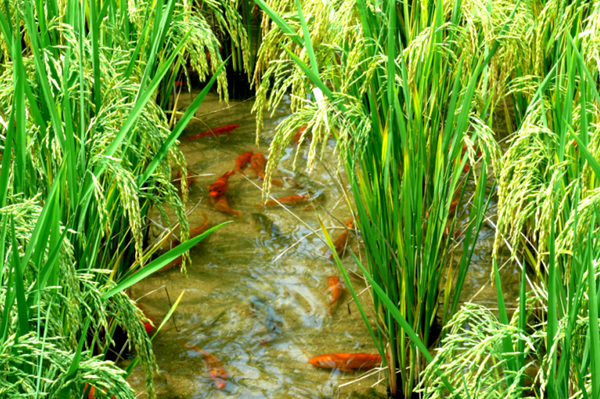Qingtian's rice-fish symbiosis contributes to ecology, economy

The rice-fish farming of Qingtian county in Lishui, Zhejiang province. [Photo/WeChat ID: qingtianfabu]
Qingtian Yugong Agricultural Technology Co's rice-fish symbiosis base has expanded to 160,000 square meters through continuous practice and improvement, with increasing yields of both rice and fish, according to its general manager Xu Guanhong.
The rice-fish symbiosis system in Qingtian county, Lishui currently covers an area of 46.73 square kilometers, with a total output value of 340 million yuan ($46.58 million). The sales channels for this kind of rice have extended to over 440 cities in China and 29 cities in Europe, making it crucial for rural vitalization and common prosperity.
Qingtian has a long history of rice-fish farming, spanning over 1,300 years. This system, which uses streams for irrigation and allows fish to grow in the rice fields, was recognized in 2005 by the Food and Agriculture Organization of the United Nations as a Globally Important Agricultural Heritage System.
To succeed in both ecological protection and rural vitalization, Qingtian has established the country's first rice-fish industry development center and introduced various supportive agricultural policies, focusing on the protection of original species, construction of core areas, and research cooperation.
Additionally, Qingtian county, with Fangshan township as a core protection area, has implemented a unified development model for the rice-fish co-cultivation products.


